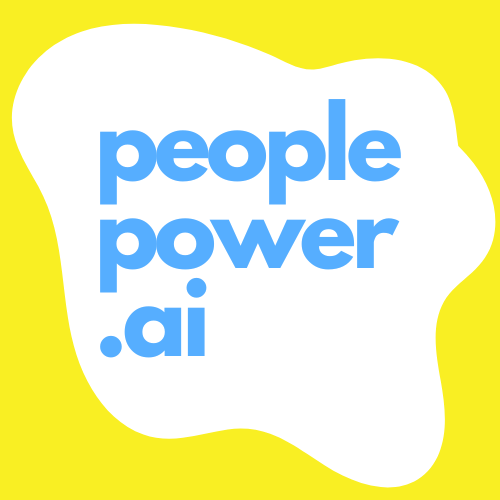Embracing the AI Era: Transforming HR by 2028
The world of work is undergoing a seismic shift, driven by the rapid integration of Artificial Intelligence (AI). Drawing on the comprehensive findings of the "AWS Study on AI Skills in the United States," this article provides a forward-looking summary of the potential of AI's pervasive impact across various business sectors, with a spotlight on its transformative influence on Human Resources and overall workplace dynamics. As an advocate for intelligent adoption of AI tools, this insight serves as our guide in exploring the ways AI is set to redefine the professional world. And while 2028 may sound like a distant point in the future, we will be there before we know it... and the coming years present a unique opportunity to build that future.
AI Adoption Across Organizations
By 2028, AI's role in business will be significant and widespread. A staggering 90% of employers anticipate implementing AI solutions in their organizations. This is not just a trend confined to tech-centric departments; it's an all-encompassing wave that promises to benefit various segments, from IT (92%) and sales and marketing (85%) to HR (78%). The promise of AI extends beyond operational efficiency to creative realms, reshaping how we approach tasks and solve problems.
ACCELERATING AI SKILLS: PREPARING THE WORKFORCE FOR JOBS OF THE FUTURE (AWS & Access Partnerships Collaboration)
The Rise of Generative AI
Generative AI, an advanced subset of AI, is poised to transform the workplace. Unlike traditional AI, which excels in pattern recognition and predictions, generative AI is adept at creating new content. This includes everything from written material to videos and music. Over 90% of both employers and employees expect substantial benefits from generative AI. Its capabilities are already reshaping how professionals, from creatives to academics, approach content generation.
AI's Impact Across Technical Expertise
The reach of AI isn't limited to those with deep technical expertise. While 61% of tech specialists anticipate using AI significantly, a considerable 40% of tech-adjacent workers and 23% of non-tech employees also see AI playing a role in their work. This inclusive trend underlines AI's versatility and its potential to enhance various skill sets. Within HR specifically, we have seen the growth in technical skills through the years - from HRIS systems to deep diving into data analytics, so while it might now be top of mind how AI can support our HR functions, the numbers don't lie - and the requirements to lean deeper into data won't stop. AI can be a solution to support both.
Career Advancements through AI Skills
Learning AI skills offers more than just knowledge; it's a gateway to career advancement and financial rewards. About 84% of employees recognize the positive impact AI can have on their careers. For those acquiring AI expertise, the financial incentives are substantial, with potential pay increases of 30% or more. Departments like IT and sales and marketing might see even higher jumps (47% and 38%, respectively). Interestingly, the enthusiasm for AI learning cuts across age groups, with a notable interest among workers over 55.
ACCELERATING AI SKILLS: PREPARING THE WORKFORCE FOR JOBS OF THE FUTURE (AWS & Access Partnerships Collaboration)
Productivity Gains from AI
Employers participating in the report predict a 47% increase in productivity thanks to AI, with larger organizations expecting up to a 49% boost. On the employee side, 41% anticipate that AI will make them more efficient in task completion. By 2028, 88% of workers expect AI to be a part of their daily tasks, with a quarter of them using it extensively.
Addressing the AI Skills Gap
AI is now the most sought-after skill in the job market, surpassing digital marketing, application development, and cloud-based tools expertise. While 42% of employers are currently seeking AI-qualified candidates, and the demand is expected to rise to 51% in the next five years. However, there's a notable gap in the market, with 75% of employers struggling to find AI-skilled talent. This shortfall is compounded by a lack of awareness around AI training programs, with 80% of employers and 79% of workers uncertain about available training options.
Developing clear strategy around education and skill building in the area of AI will be mission critical, and professionals that aren't provided this advantage through their employers will need to find ways and resources to flatten the learning curve on their own. Thankfully, there are resources aplenty, however they vary in value and true learning opportunities.
AI and the Future of Work
From Day 1, I’ve held strong in the belief that HR leaders are uniquely positioned to steer their organizations through this transformative journey of AI Adoption. The "AWS Study on AI Skills in the United States" not only highlights the imminent integration of AI across business functions but also underscores the vital role of HR in facilitating this transition. The study prompts HR professionals to champion the development of an AI-fluent workforce, equipping them to exploit the full spectrum of AI's benefits. This pivotal moment in technology presents a remarkable opportunity for HR to redefine their strategic contribution and lead their organizations towards a future marked by innovation, productivity, and growth.
The Clincher.
If the previous points haven't sparked your curiosity about the future of work when viewed through the lens of AI, then perhaps a more tangible benefit will help you see. Sometimes it pays to jump into the the unknown. And in fact, I anticipate that the actual numbers will surpass what the graph below illustrates, as we shed light on the potential of HR Leaders to drive business efficiency and outcomes through the utilization of AI.
